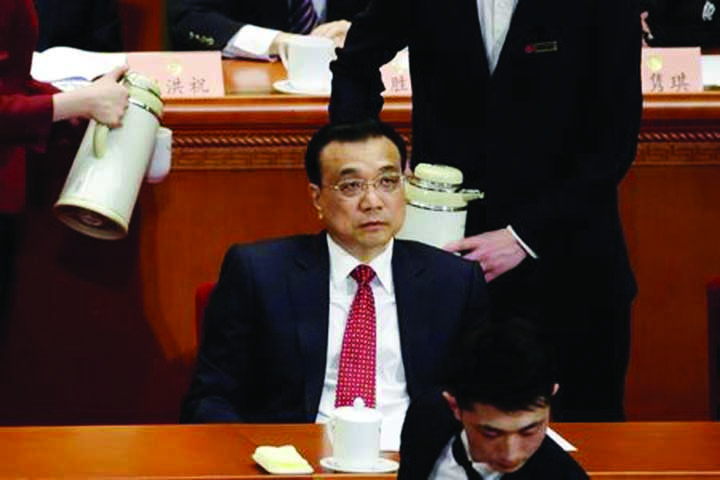
AFP, Beijing :
China will firmly oppose Taiwan “separatism”, Premier Li Keqiang declared Sunday, following tension with US President Donald Trump over the island, and said Hong Kong independence moves would “lead nowhere”.
“We will resolutely oppose and contain separatist activities for Taiwan independence,” Li said in a speech opening the annual session of China’s rubber-stamp National People’s Congress.
“We will never tolerate any activity, in any form or name, which attempts to separate Taiwan from the motherland.”
Trump raised eyebrows following his November election victory with a protocol-busting telephone conversation with Taiwan’s President Tsai Ing-wen.
He later threw doubt on the “One China” policy-a tacit acknowledgement of China’s claim to the self-ruled island-suggesting that the decades-old diplomatic formulation was up for negotiation, which drew protests from China. Li, however, extended the usual cautious olive branch across the Taiwan Strait, saying China would continue efforts to increase linkages with the island, which have included rising cross-strait investment, daily direct flights and increased tourism between the two territories. “People on both sides of the Taiwan Strait should keep in mind the greater interests of the nation”, and work towards the “reunification of China”.
In Hong Kong, fears have grown that Beijing is increasingly interfering in the governance of the semi-autonomous financial hub, sparking calls by some activists for self-determination or even independence.
Such calls have riled Beijing, and Li shut down any hope of Hong Kong independence.
“The notion of Hong Kong independence will lead nowhere,” he said.
Li’s annual report to the highly choreographed congress is akin to a state-of-the-nation address highlighting key government priorities for the year, which are then typically parroted in subsequent delegate meetings.
China is deeply suspicious of Taiwan President Tsai Ing-wen, whose ruling Democratic Progressive Party espouses the island’s formal independence, a red line for Beijing, which has cut off an official dialogue mechanism with Taipei.
Tsai says she wants peace with China.
“We will never tolerate any activity, in any form or name, which attempts to separate Taiwan from the motherland,” Li said in a report available before he delivered an annual address to China’s top legislature. China will protect national sovereignty and territorial integrity while safeguarding peace and stability across the Taiwan Strait, Li said.
Defeated Nationalist forces fled to Taiwan in 1949 after losing a civil war to the Communists. China has never renounced the use of force to bring Taiwan under its control, viewing it as a wayward province.
In 2014, hundreds of students occupied Taiwan’s parliament for weeks in protests known as the Sunflower Movement, demanding more transparency and fearful of China’s growing economic and political influence on the democratic island.
Chinese jets and warships carried out exercises near Taiwan and into the Western Pacific on Thursday, as Taiwan’s defense minister warned of a growing threat from its giant neighbor.
Li also said the notion of Hong Kong independence would lead nowhere, and Beijing would ensure that the principle of “one country, two systems” is applied in Hong Kong and Macao “without being bent or distorted”.
Hong Kong, a former British colony, returned to Chinese rule in 1997 under a “one country, two systems” formula, granting it extensive autonomy, an independent judiciary and rule of law for at least 50 years.

